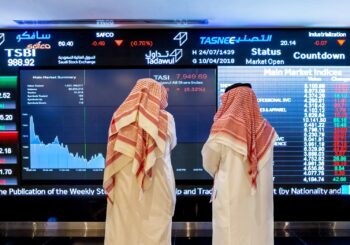Saudi Arabia has begun hosting OpenAI’s newest open-source models inside its borders, giving developers and organizations access to advanced artificial intelligence systems without relying on foreign data centers.
The deployment comes through a partnership between HUMAIN, a Saudi Public Investment Fund-backed tech company, and Groq, a US-based firm known for high-speed AI chips. The models, gpt-oss-120B and gpt-oss-20B, are now running on Groq’s hardware inside HUMAIN’s data centers in Saudi Arabia.
This makes Saudi Arabia the first country in the region to provide local access to AI models of this scale and capability.
What does this actually mean?
Most AI services today, including chatbots and productivity tools, rely on infrastructure located overseas. This setup can create several issues for users in the Middle East: slower response times, higher costs, and concerns about data leaving the country.
By hosting the models inside Saudi Arabia, this partnership aims to reduce latency, lower costs, and ensure compliance with local data protection laws.
For developers and businesses, this can mean faster access to tools for things like coding, translation, summarization, and customer support. For institutions, it provides a way to experiment with generative AI while meeting local regulatory requirements.
What are these models?
The two models – gpt-oss-120B and gpt-oss-20B – are newly released by OpenAI as part of its open-source offerings. They are designed to handle long-form reasoning, conversations, and tasks like semantic search and code generation.
Groq’s chips, which power the models, are built for inference tasks. This means they are optimized for running AI models quickly and efficiently, compared to general-purpose hardware like GPUs.
According to the companies, the gpt-oss-120B model is running at over 500 tokens per second, while the gpt-oss-20B model is running at over 1,000 tokens per second.
Why now?
Saudi Arabia has made artificial intelligence a central part of its national strategy. It has launched initiatives focused on building local AI talent, supporting research, and investing in tech infrastructure. The partnership with Groq is part of that broader effort.
“This is what AI sovereignty looks like, and it’s only the beginning,” said Tareq Amin, CEO of HUMAIN in a press release.
Groq’s CEO, Jonathan Ross, said the collaboration was about combining world-class infrastructure with emerging markets that are serious about building their own ecosystems. “Our partnership with HUMAIN gives us a powerful regional and globally central presence in one of the fastest-growing AI ecosystems on the planet,” he said.
So what does this mean for everyday users?
While the direct users of these models will be developers, researchers, and institutions, the results could eventually show up in more accessible ways. Think better customer service bots, improved Arabic language tools, or faster document analysis tools built by local startups.
The fact that these tools are being hosted locally also means that Saudi-based companies or government entities may feel more comfortable experimenting with generative AI, knowing that their data stays within the country.
Importantly though, Saudi Arabia’s move to locally host powerful open-source AI models reflects a growing push for digital independence and infrastructure development. It is a step toward giving developers and organizations more tools to build with, while also staying aligned with national laws and data policies.








Comments (0)